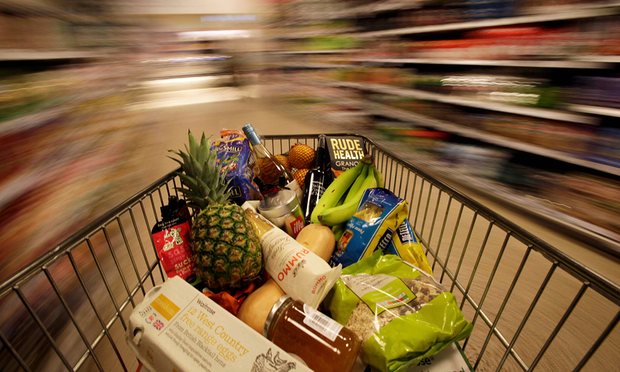Economy
Food Inflation Rises by 309% in Zimbabwe as Other African Countries Struggle to Rein in Prices
Food prices in one of the poorest countries in the world, Zimbabwe rose by 309% in the month of July, according to data from the country’s statistics office.

Food prices in one of the poorest countries in the world, Zimbabwe rose by 309% in the month of July, according to data from the country’s statistics office.
In June, food inflation grew by 224.80% while the headline inflation stood at 256.90% amid persistent increase in prices of goods and services despite efforts to contain escalating prices and cool the economy.
Explaining the reason for the country’s inflation challenges, Mthuli Ncube, finance minister, said the ongoing Russia-Ukraine war dragged on the already fragile economy to create price instability via currency volatility.
He said the Ukraine war “coupled with our historical domestic imbalances, has created challenges in terms of economic instability seen through the currency volatility and spilling over into price volatility.”
Many Zimbabweans can no longer afford three square meals. Even the country’s working class are complaining.
In June, the Progressive Teachers Union of Zimbabwe took to Twitter to complain about how teachers can no longer afford bread and other basics.
In the tweet, the teachers said we “can no longer afford bread and other basics, this is too much.” Therefore, the nation’s three largest teachers’ unions are calling on the government to start paying teachers in U.S. dollars and the continuous decline in their local currency value has eroded their salaries’ monetary value or purchasing power.
“Because of high inflation, the local currency is collapsing,” economic analyst Prosper Chitambara told The Associated Press. “Individuals and companies no longer trust the local currency and that has put pressure on the demand for U.S. dollars. The Ukraine war is simply exacerbating an already difficult situation.”
The story is not different in other African countries where many nations are grappling with record-high inflation. In Nigeria, inflation rose to a 17-year high of 19.64% in July while food inflation stood at 22.02% amid wide foreign exchange rates, herder crisis, insecurities and other inconsistent policies.
Ethiopia has the second highest food inflation after Zimbabwe, according to Investors King research. Food inflation stood at 35.5% in the East African nation in July.
While Rwanda, Africa’s cleanest country, came third with 32.7%. Ghana and Malawi are not any better with 32.3% and 31.2%, respectively. See other details in the table below.
List of African Countries’ Food Inflation Rates
| S/N | Countries | Inflation Rate % |
| 1 | Zimbabwe | 309 |
| 2 | Ethiopia | 35.5 |
| 3 | Rwanda | 32.7 |
| 4 | Ghana | 32.3 |
| 5 | Malawi | 31.2 |
| 6 | Burkina Faso | 28.9 |
| 7 | Djibouti | 25.7 |
| 8 | Angola | 25.1 |
| 9 | Burundi | 24.5 |
| 10 | Sierra Leon | 23 |
| 11 | Egypt | 22.4 |
| 12 | Nigeria | 22.02 |
| 13 | Mozambique | 17.24 |
| 14 | Senegal | 17.2 |
| 15 | Somalia | 16.86 |